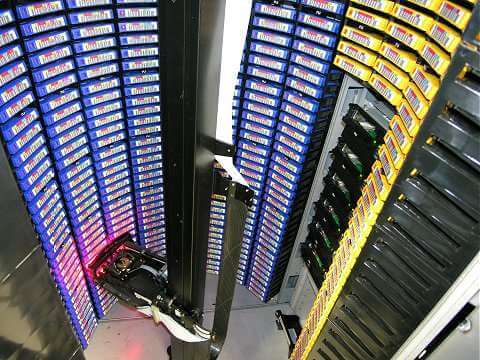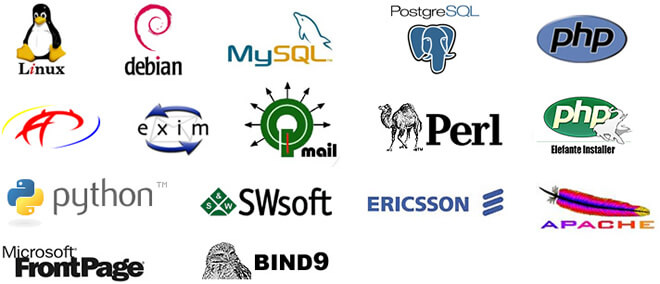Outsourcing Backup? Top 5 Challenges You Need to Address
Outsourcing comes in different forms, from call center to the entire data center. Now there are companies that are outsourcing their backup infrastructure; this is not moving their documents and databases to the cloud, but rather than having someone monitor backups, manage tapes etc., like a full-time backup administrator would do.
As is the case in all tasks we perform, we need to be aware of what challenges await us from start to finish. Here is my top 5 questions that I recommend my clients to ask themselves when they are outsourcing their backups.
What is Your Historic Data Growth? What are Your Predictions?
Whether you are considering outsourcing your backup, evaluating your backup strategy or planning for purchasing a new storage system, you need to know your data growth plus your company’s growth strategy. Since backup is directly related to your data size, knowing your data in detail is your starting point. You then need to know such things like your company’s growth strategy, such as opening new branch offices, hiring more people, entering different markets, mergers/acquisitions and expanding to new business areas. Putting down everything on paper will make you see everything from a broader point of view and will make your solutions more solid, not only from a backup perspective but also for your future IT support.
In terms of outsourcing your backup, all these information will boil down to your outsourcing contract: during the contract time the contractor needs to know the size of the data, consider additional investments such as purchasing new hardware or reevaluating existing licensing terms and the like. Since you are offloading your data’s risk to another company, they need to be informed about the known future.
RELATED: CIO Perspective: How to Form Strong End-user Relationships
Is Your Contractor Fit for Your Business?
“What an obvious question” you may say until you face an unfit contractor. A company that has a proven track record of small and medium-size businesses does not mean that it will be successful in an enterprise.
One of my clients faced this issue when they finalized their contractor and began the outsourcing project. Immediately in the second day they were stuck because the contractor did not know about SAP’s transaction backups. Although the contractor was fit for the small and medium-size businesses taking SQL backups, they failed when the company asked them to backup SAP’s transaction logs; they did not know why or how they would take transaction log backups.
Or in another case (another client, another contractor) the contractor did not have full knowledge of Exchange Database Availability Group (DAG) infrastructure. He tested an Exchange 2010 environment in his office without DAG implementation and all went fine. When he faced with 70+ mailbox databases, he could not find a working solution to backup Exchange databases for some weeks.
When choosing your contractor make sure that he understands your environment fully. As a medium-size business you do not need enterprise-level backup service or from another point of view, if you are an enterprise, you cannot work with a contractor that is only fit for a medium-size business.
Is the Chosen Backup Hardware Sufficient?
The responsibility of backing up the data is enormous and it is tempting to outsource it. But know in advance that outsourcing backup is very very challenging.
“What an obvious question again” you may say; at the very least it is written on the contract isn’t it? Yes, it theoretically is, but not practically. If the contract has a clause that says the contractor is responsible for the hardware until the end of the contract and will be delivered to the company at contract’s termination, then it is the company -you- that also has a say in the hardware. At least you need to consider the reasons of such purchase, if everything is chosen just for cost purposes rather than company’s strategy, then at the termination you will be left with lower grade equipment. If your data center uses better grade equipment, you will also need to think about integrating inferior hardware to your existing infrastructure and probably with an inferior support.
RELATED: Hosting Considerations for E-commerce
On the other hand, it can be you, not the contractor, that has unfit hardware. What would you do if the contractor brings in storage systems with 10 Gigabit fiber connections where your switches cannot provide more than 4 Gigabit? Or a system with a couple of 10 Gigabit ethernet adapters and your infrastructure is stuck at 1 Gigabit? You get the idea: it is also an opportunity to evaluate every piece of hardware during the process, which you did not think about during your daily routine.
Is the Chosen Backup Software Fit for Your Environment?
Again a seemingly obvious question that brings lots of trouble when not properly addressed. If your Exchange environment is more critical to your business than a file server (I have some clients that explicitly say this is the case) and item level recoveries are a must, then the backup software should be capable of both backing up and restoring individual Exchange items – e-mail, calendar entries, tasks, notes, contacts etc.. And if the chosen backup software is not capable of doing this, no matter what world-class enterprise backup software is that, it is not suitable for your organization.
RELATED: Data Backup and Recovery Solutions
Your vendor may not be aware of your specific requirements. Make sure that you have brought everything to the negotiation table and make sure you guide your contractor with those key issues. The contractor may choose a backup software that he thinks is enterprise class, but if it is not capable of meeting your key requirements, it is useless.
How will you ensure your data security?
It is tempting to outsource backup; eh, why would you bother with the tedious, relentless job of managing backups, tapes, disks which brings no knowledge in return, consumes man hours, lowers productivity, puts an enormous stress on your shoulders? On the other hand, outsourcing backup is essentially giving your e-mails, files, financial data, corporate secrets to body else. You may say that the contractor agreement is bound by the terms of the contract, especially the nondisclosure part. Correct, I agree but I also say that you need to think a bit more about your data security.
How about creating a user for the contractor for backup purposes and creating another user for restore purposes? This will add another layer of security to the backup procedures and make the contractor realize that he cannot make restores without proper permissions and cannot make restores any time he chooses to.
These are the most prominent challenges I have seen when companies outsource their backup systems to contractors. What are your challenges? Hit the comments below!
Image Credits:
- Featured image: http://www.tu-harburg.de
- Datacenter: http://cachingtech.com




